#david hurst
Text
Kelly's Heroes (1970)
Kelly's Heroes by #BrianGHutton starring #ClintEastwood and #TellySavalas, "only go for this one if its familiarity is appealing to you",
BRIAN G. HUTTON
Bil’s rating (out of 5): BB.5
USA/Yugoslavia, 1970. Metro-Goldwyn-Mayer, Katzka-Loeb, Avala Film, The Warriors Company. Screenplay by Troy Kennedy-Martin. Cinematography by Gabriel Figueroa. Produced by Sidney Beckerman, Gabriel Katzka. Music by Lalo Schifrin. Production Design by John Barry. Costume Design by Anna Maria Feo. Film Editing by John Jympson.
A platoon of American…
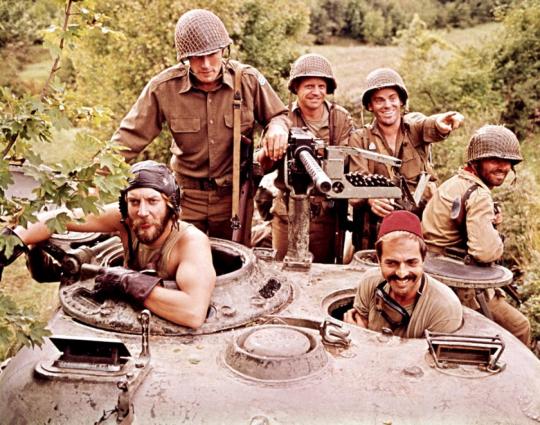
View On WordPress
#Anna Maria Feo#Avala Film#Brian G. Hutton#Carroll O&039;Connor#Clint Eastwood#David Gross#David Hurst#Dee Pollock#Dick Balduzzi#Don Rickles#Donald Sutherland#Donald Waugh#Frank J. Garlotta#Fred Pearlman#Gabriel Figueroa#Gabriel Katzka#Gavin MacLeod#Gene Collins#George Fargo#George Savalas#Hal Buckley#Harry Dean Stanton#Harry Goines#Hugo De Vernier#James McHale#Jeff Morris#John Barry#John G. Heller#John Jympson#Karl-Otto Alberty
2 notes
·
View notes
Text

Smart Alec (1951) John Guillermin
June 25th 2023
#smart alec#1951#john guillermin#peter reynolds#leslie dwyer#kynaston reeves#edward lexy#charles hawtrey#mercy haystead#david hurst#david keir
0 notes
Text

#sons of anarchy#chibs telford#tiggy#tommy flanagan#kim coates#jax teller#charlie hunnam#theo rossi#juice#opie winston#ryan hurst#happy lowman#david labrava
142 notes
·
View notes
Photo

After doing a few group posters for The Walking Dead, I wanted to do a poster dedicated to some of the most epic villains on the show. I hope all of you like it. It features Negan, Beta, Lance Hornsby, Alpha, The Governor, Merle Dixon and Shane Walsh.
This one is also up at my etsy shop:
https://www.etsy.com/listing/1362191643/the-walking-dead-villains-minimalist
#Negan#Jeffrey Dean Morgan#The Walking Dead#Beta#Ryan Hurst#Lance Hornsby#Josh Hamilton#Samantha Morton#Alpha#The Governor#David Morrisey#Merle Dixon#Michael Rooker#Shane Walsh#Jon Bernthal#my art
68 notes
·
View notes
Photo

SAVING PRIVATE RYAN 1998
You can tell her that when you found me, I was with the only brothers I had left. And that there was no way I was deserting them. I think she'd understand that.
#saving private ryan#1998#tom hanks#edward burns#tom sizemore#jeremy davies#vin diesel#adam goldberg#barry pepper#giovanni ribisi#matt damon#dennis farina#ted danson#harve presnell#bryan cranston#david wohl#nathan fillion#paul giamatti#ryan hurst#max martini#leland orser
35 notes
·
View notes
Photo




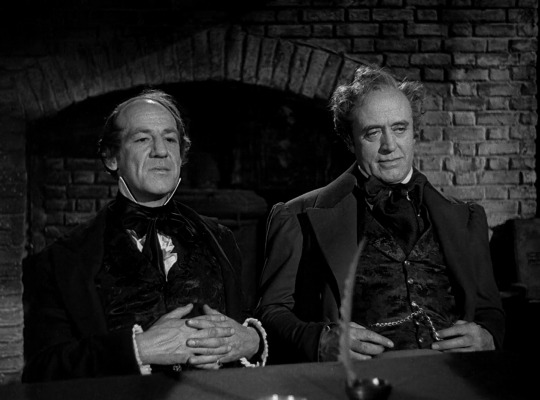

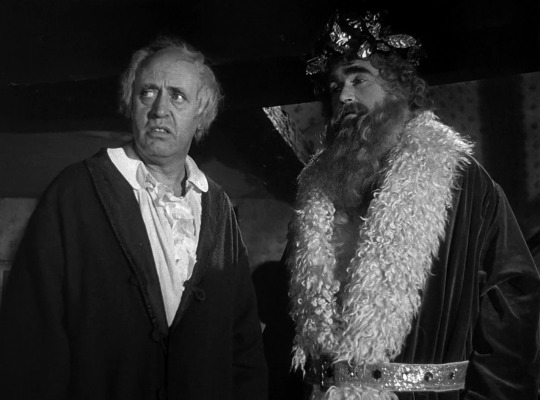
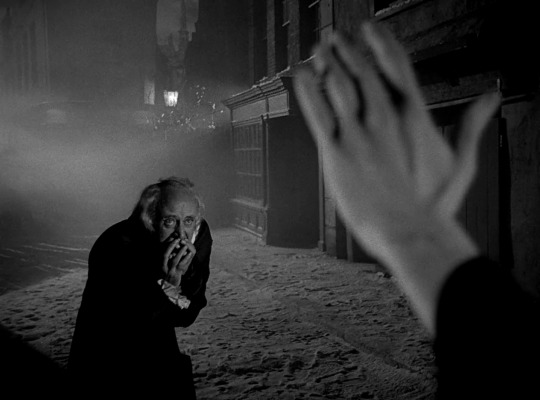


A Christmas Carol (AKA Scrooge) | Brian Desmond Hurst | 1951
#Brian Desmond Hurst#A Christmas Carol#Scrooge#1951#Scrooge 1951#Alastair Sim#Michael Dolan#Francis De Wolff#Michael Hordern#Czeslaw Konarski#David Hannaford#Glyn Dearman#Moiya Kelly#Catherine Leach#Luanne Kemp#John Charlesworth
39 notes
·
View notes
Text
youtube
27 notes
·
View notes
Photo
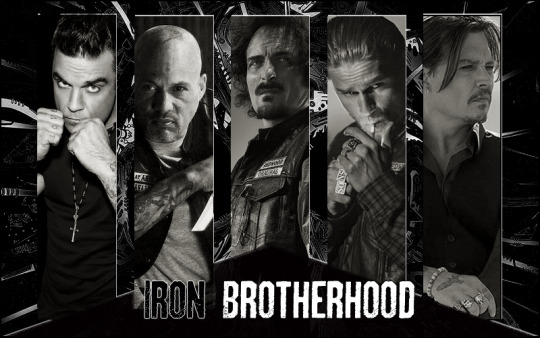


Iron Brotherhood MC (fan fiction) ForumRPG . Californication et Arizona-Dream ....
(@Kurt.W @LaidZ’art)
#soa#sons of anarchy#tig trager#kim coates#Johnny Depp#Charlie Hunnam#Jax Teller#opie winston#ryan hurst#robbie williams#happy soa#david labrava#forumactif#forum rpg#fiction#Bikers#header#brothehood#ash stymest#damon runyan
14 notes
·
View notes
Photo
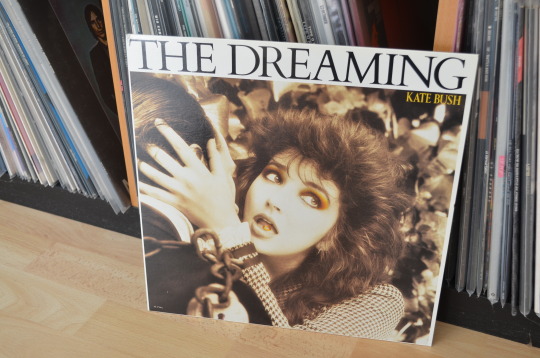
Kate Bush: The Dreaming
EMI Records USA/CEMA Special Markets S11-56886/ST-17084, 1993
Originally released: 13 September 1982
#meine photos#vinylcollection#kate bush#1982 music#vinyloftheday#gary hurst#ian bairnson#paddy bush#stewart arnold#jimmy bain#preston heyman#geoff downes#del palmer#stuart elliott#dave lawson#david gilmour#brian bath#alan murphy#rolf harris#percy edwards#gosfield goers#sean keane#liam o'flynn#donal lunny#esmail sheikh#paul hardiman
3 notes
·
View notes
Text
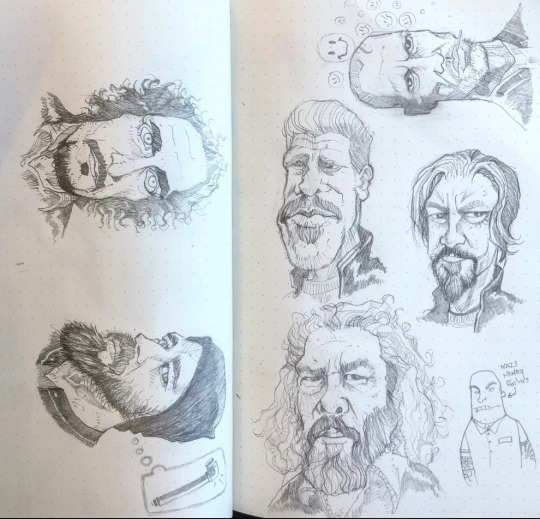
Sons of Anarchy sketches from 2018
#artists on tumblr#illustration#my art#fanart#sons of anarchy#kim coates#mark boone junior#tommy flanagan#ryan hurst#ron perlman#david labrava#portrait#sketchbook#pencil drawing
1 note
·
View note
Text
Sharp Objects (2018)
Though I knew the major plot twist for the series, "Sharp Objects" was still a fascinating and powerful watch. The performances in this series should have brought a slew of awards to the main trio. 4/5 stars overall, more in the link.
Starring: Amy Adams, Chris Messina, Patricia Clarkson, Elizabeth Perkins, Eliza Scanlen, David Sullivan, Hillary Ward, Jackson Hurst, Jennifer Apsen, Lulu Wilson, Madison Davenport, Matt Craven, Raven Pasternak, Sophia Lillis, Sydney Sweeney, Taylor John Smith, Will Chase, Miquel Sandoval
My Rating: 4/5 Stars
Rotten Tomatoes: 92% Critics, 83% Audience
Description: “Based on the debut novel of…

View On WordPress
#Amy Adams#Chris Messina#Crime TV#David Sullivan#Eliza Scanlen#Elizabeth Perkins#Gillian Flynn#HBO#HBO Max#HBO originial#Hillary Ward#Jackson Hurst#Jennifer Apsen#Lulu Wilson#Madison Davenport#Matt Craven#Miquel Sandoval#Murder Mystery#Mystery TV#Patricia Clarkson#Raven Pasternak#Sharp Objects#Sharp Objects (2018)#Sharp Objects by Gillian Flynn#Sharp Objects on HBO#Sophia Lillis#Sydney Sweeney#Taylor John Smith#TV reviews#TV Show Reviews
1 note
·
View note
Note
What are your opinions on Pride and Prejudice 1980 overall?
Would you say that it is a faithful adaptation? Would you recommend it to a P&P fan?
I'm very partial to it and I would rate it over the 1995. I know most people adore the 1995 version, though.
I love it!
I was just talking about my two favorite adaptational takes on P&P here, and the 1980 P&P is one of them.
It definitely has flaws, both as a work in its own right and as an adaptation. You were asking about how it functions as adaptation, so I'm going to focus on that, but the overall aesthetic is extremely 1979 on a limited budget. Some of the visual/narrative choices are very staid adaptationally (like showing Elizabeth reading Darcy's letter by ... literally showing Elizabeth reading the letter).
On the flip side, there are a few improbable divergences, most notably the rushed and peculiar presentation of the second proposal (though getting a glimpse of post-proposal Darcy and Elizabeth's happiness counts for a lot for me!). There's also stuff added that doesn't really change anything, but is arguably not faithful per se. And this is not always acknowledged by the fans it does still have. Personally, I love the weird instrumentation that follows Mr Collins around and Mr Hurst's anti-mountain agenda, but people's mileage may vary.
Beyond that, I love it as an adaptation that veers away from tapping into accessible (or caricatured) stereotypes the way the 1995 does. The 1980 P&P's characters really do feel to me like very specific and usually more nuanced interpretations of the original characters compared to basically every other version of P&P—not necessarily my interpretations, but I always feel like I can see where the interpretation is coming from, beyond appeals to contemporary audience sensibilities.
Elizabeth Garvie's Elizabeth is the jewel of the production for me—charming, lively, witty, vain, with a distinct tinge of sweetness that I think adaptations often lose sight of. It's honestly difficult to even say much about her because she is simply perfect to me.
David Rintoul's Darcy is probably my favorite Darcy, too. His demeanor isn't exactly what I personally imagine, to be sure (he's not as somberly brooding as Colin Firth's Darcy, but the spirited, smiling cleverness Darcy shares with Elizabeth isn't quite there for me). But I truly respect the choice to retain the general stiffness and formality of his character rather than reducing him to a more palatable love interest/sex object. He's allowed to be odd and to make us uncomfortable in a way I don't think other adaptations are willing to risk with him.
As for the others, Bingley, Jane, and Georgiana all give the impression of more substance to them than they usually get IMO. Mrs Bennet and Caroline are obnoxious but not particularly caricatured (without the adaptation seeming apologetic towards them, either). I love the stylish, younger Mrs Gardiner and Lady Catherine, and the relatively subtle versions of their personalities. Probably the only character choice that doesn't work adaptationally for me is the very harsh Mr Bennet, who lacks much of the endearing wit of the original—though even there, I can appreciate how unwilling the adaptation is to give him a pass (by stark contrast with the much cuddlier Mr Bennets of most other productions).
Would I call it faithful? Not universally, but it is the most engaged with the novel IMO. I don't think anything is so faithful that an adaptation can be a perfect interpretation that shouldn't ever be tried again and done better, but it is the most faithful P&P out there for me, still.
Would I recommend it to a P&P fan? That's a bit harder. It's aesthetically/cinematically dated and in some ways, it's better as interpretation than as television. For people who aren't used to that staid late 70s BBC approach ... idk, it can be a tough sell. I wouldn't casually recommend it, I guess, just because the contrast with the polish of the 1995 and the beauty of the 2005 is so stark. But for people who can look past that 70s BBC period drama baggage, there's a lot that's really interesting and engaging about it.
I certainly prefer it to the 1995, but since I intensely dislike the 1995, that's not saying a whole lot. It's probably more useful on my end to say that I just really love the 1980 P&P, despite having criticisms of it. I don't even know how many times I've watched it. For me, it's a joy.
#veritablydumb#respuestas#austen blogging#austen fanwank#long post#pride and prejudice 1980#andrew davies critical
24 notes
·
View notes
Text

#sons of anarchy#kim coates#tiggy#soa#theo rossi#david labrava#juice#happy#mark boone junior#bobby munson#kenny johnson#kozik#ryan hurst#opie winston
11 notes
·
View notes
Text
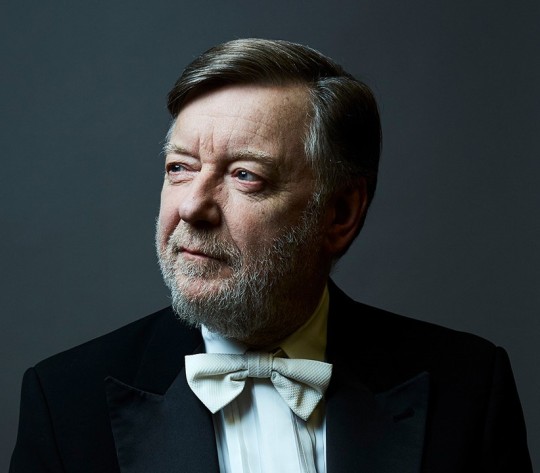
Sir Andrew Davis
One of Britain’s greatest conductors widely admired for leading the BBC Symphony Orchestra at the Proms
One of the most beloved and highly esteemed conductors of his generation, Sir Andrew Davis, who has died aged 80 of leukaemia, was a familiar presence on the podium, not least through his countless appearances at the BBC Proms in his capacity as chief conductor of the BBC Symphony Orchestra (1989-2000).
After Adrian Boult, his was the second longest tenure of the post in the history of the orchestra. During the same period he was also music director of Glyndebourne Opera (1988–2000), conducting works by Mozart, Janáček and Richard Strauss, among many others.
The sheer range of his repertoire was in fact one of the defining features of Davis’s career. Not only was he acclaimed as an empathetic interpreter of British music from Elgar and Vaughan Williams to Holst and Bliss, but he also had the ability to assimilate contemporary scores such as Michael Tippett’s The Mask of Time, Harrison Birtwistle’s The Mask of Orpheus, Nicholas Sackman’s Hawthorn or David Sawer’s Byrnan Wood, all of which were either introduced at the Proms or recorded. The Birtwistle was named record of the year at the Gramophone awards in 1987.
But as he showed season after season in the BBC post, Davis could bring both vitality and a discerning sense of idiom to almost any music. One recalls, almost at random, a 2015 concert featuring a sensuous account of Delius’s In a Summer Garden, followed by a lithe and muscular suite from Ravel’s erotic Daphnis et Chloé, the ecstatic choral shouts and shuddering climaxes leaving little to the imagination. The concert also included music by Carl Nielsen and a new work, Epithalamion, by Hugh Wood.
One of many highlights of his Proms appearances was his commanding premiere in 1998 of Elgar’s Third Symphony in the “elaboration” by Anthony Payne (effectively a performing version made from the composer’s sketches).
Another was his speech from the podium in 1992, delivered as a patter song to the tune of Gilbert and Sullivan’s “I am the very model of a modern major-general”, complete with witty rhymes and repartee with the delighted audience. The trick was repeated on the final night of the 2000 festival, his last as the orchestra’s chief conductor. On his arrival at the BBC Symphony Orchestra, the more truculent members of the ensemble had to be won over, but they were, by his genial humour and charm, as well as his purely musical talents.
He was also popular with soloists, not necessarily offering a radically new perspective of his own, but listening carefully to them to provide an ideal accompaniment. The pianist Stephen Hough said he had “the sharpest ear and the clearest stick”. Both on and off the podium Davis exuded bonhomie and affability. His concern as a conductor was always to create the conditions that enabled musicians to give of their best.
Born in Ashridge, Hertfordshire, he was the son of Robert Davis, a compositor, and his wife, Joyce (nee Badminton). Andrew began to learn the piano at the age of five and attended Watford grammar school. In 1959 he started organ studies with Peter Hurford and subsequently won an organ scholarship to King’s College, Cambridge, where he played under David Willcocks. He then studied conducting at the Accademia di S Cecilia, Rome, under Franco Ferrara, and in London with George Hurst. From 1966 to 1970 he was pianist, harpsichordist and organist with the Academy of St Martin in the Fields.
In 1970 he made his debut with the BBC Symphony Orchestra and in the same year was appointed assistant conductor of the BBC Scottish Symphony Orchestra. He then became principal guest conductor of the Royal Liverpool Philharmonic Orchestra (1974–77) and music director of the Toronto Symphony Orchestra (1975–88), whose stature he boosted with major tours of North America, Europe and Asia. In 1982, he helped establish the orchestra’s new home at Roy Thomson Hall, and advised on the construction of its organ.
Then came the posts at the BBC Symphony Orchestra and Glyndebourne. His debut at the latter had been in Strauss’s Capriccio (1973) and he was to become a noted exponent of the composer’s operas.
In 1989 he married the soprano Gianna Rolandi, whom he had met when she sang Zerbinetta under his baton first at the Metropolitan, New York, in 1984 and again at Glyndebourne in 1988.
On his retirement from the BBC in 2000 he moved to the US with Rolandi and their son, Edward, to take up the appointment of music director, until 2021, of the Lyric Opera of Chicago, where he conducted nearly 700 opera performances including Wagner’s Ring cycle (2004–05). A second cycle was planned for the 2019–20 season, but was never completed on account of the Covid pandemic. He additionally conducted orchestral concerts at the Lyric and free concerts at Millennium Park.
From 2012 to 2019, he also held the post of chief conductor of the Melbourne Symphony Orchestra, becoming conductor laureate, while continuing to live in the US.
In addition to his conducting, he made an orchestration of Handel’s Messiah, performing it with the Toronto orchestra, and of Berg’s Piano Sonata, op 1, and Passacaglia (Berg was a composer who inspired him, he once said, throughout his life). His own compositions included La Serenissima: Inventions on a Theme by Claudio Monteverdi (1980), Chansons Innocentes for children’s chorus and orchestra (1984) and Alice (2003) – settings of Lewis Carroll for mezzo-soprano, tenor and children’s chorus. At his death he was working on orchestrating some of JS Bach’s organ music.
During the pandemic lockdown he drew on his knowledge of the classics, gained as a student, to undertake an original translation of Virgil’s Aeneid. Though modest about his poetic abilities, he did comment that the experience was comparable to that of making music: “The manipulation of sonorities and rhythms and the search for ways of bringing to life the vividness of Virgil’s imagery and at times his great emotional power struck me as remarkably similar to the search that I have been engaged in all my life on the podium.”
His numerous recordings reflect the vast range of his repertoire, British and contemporary music looming large alongside Stravinsky, Strauss, Berlioz, Ives, Sibelius, Weill and the complete Dvořák symphonies. A 16-CD retrospective collection celebrating British composers on Teldec’s The British Line series was released by Warner Classics.
In 1991, he received the Royal Philharmonic Society/Charles Heidsieck music award. He was appointed CBE in 1992 and knighted in 1999.
Rolandi died in 2021. Davis is survived by Edward, a composer, singer and conductor.
🔔 Andrew Frank Davis, conductor, born 2 February 1944; died 20 April 2024
Daily inspiration. Discover more photos at Just for Books…?
5 notes
·
View notes
Text
my 2023 reads 💌
(this year i’ve decided to include individual poems, articles, short stories, and more!)
mad girl’s love song by sylvia plath (1/02)
red by ted hughes (1/02)
the lion, the witch, and the wardrobe by cs lewis (1/01-1/03)
someday i’ll love ocean vuong by ocean vuong (1/04)
you think it, i’ll say it by curtis sittenfeld (1/01-1/04)
no exit by taylor adams (1/04-1/08)
the drinking water crisis on tribal lands and how the federal government is finally stepping up by marianne goodland (1/09)
the unfinished business of flint’s water crisis by anna clark (1/09)
do not go gentle into that good night by dylan thomas (1/09)
susan sontag on writing by maria popova (1/15)
dark they were, and golden eyed by ray bradbury (1/16)
we were dreamers by simu liu (1/08-1/19)
on photography by susan sontag (1/15-2/03)
diversity vs. fairness by david leonhardt (2/15)
an act of love by tommye blount (2/15)
the horse and his boy by cs lewis (2/11-2/15)
dept. of speculation by jenny offill (2/13-2/18)
sonnets to orpheus by rainer maria rilke (2/20-2/22)
prince caspian by cs lewis (2/18-2/22)
the summer i turned pretty by jenny han (2/26-3/02)
it’s not summer without you by jenny han (3/02-3/04)
we’ll always have summer by jenny han (3/04)
a history of performance (edition: hamlet) by david bevington (3/04)
hamlet by william shakespeare (1/31-3/23)
1984 by george orwell (1/29-3/28)
gone girl by gillian flynn (4/03-4/07)
the joy luck club by amy tan (5/06-6/04)
alexander hamilton by ron chernow (5/14-6/14)
letters to a young poet by rainer maria rilke (6/30)
animal farm by george orwell (6/30-7/02)
the bell jar by sylvia plath (7/02-7/15)
twelfth night by william shakespeare (7/16-7/30)
sappho: a new translation by sappho, translated by mary barnard (8/21)
the scarlet ibis by james hurst (8/22)
marigolds by eugenia collier (8/23)
the monkey’s paw by w.w. jacobs (8/23)
the open boat by stephen crane (8/24)
korean through english by sang-oak lee (2/20-8/24)
the lady or the tiger? by frank r. stockton (8/26)
the minister's black veil by nathaniel hawthorne (8/29)
an occurrence at owl creek bridge by ambrose bierce (8/29)
korean social emotions: han (한 恨), heung (흥 興), and jeong (정 情) by iljoon park (8/30)
the cask of amontillado by edgar allan poe (8/30)
the yellow wallpaper by charlotte perkins gilman (8/30)
beautiful world, where are you by sally rooney (7/02-8/30)
daisy jones & the six by taylor jenkins reid (8/30-9/3)
the chalice of the gods by rick riordan (10/08-10/12)
the beatrice letters by lemony snicket (10/14) - reread
yellowface by rf kuang (11/03)
diper overlode by jeff kinney (11/03-11/05)
43 notes
·
View notes
Text
We start the first of a two-part series examining the musical Camelot, the Broadway hit based on T.H. White’s The Once and Future King, which I recently re-read in preparation. For part one, we look at both the original cast recording from 1960, as well as two clips from the Ed Sullivan show, featuring Richard Burton as King Arthur and Julie Andrews as Guenevere. Unfortunately, this is all we could find of that particular version of the show. We were, however, able to find a 1981 stage revival starring Richard Harris and Meg Bussart and filmed for HBO.
The 1981 production differs from the original production, streamlining some elements, cutting some characters, but largely is the same show. In both cases, the effort to condense a 700-page novel into a two and a half hour musical greatly simplifies some of the driving philosophy of the book—as much a meditation on politics and the rise of fascism as it is a consciously-anachronistic fantasy and elegy for a dying world (very much reading like Lord of the Rings meets A Connecticut Yankee). However, focusing on the love triangle and Arthur’s conundrum of balancing justice and mercy, might and right, makes for an effective musical, one which even influenced the popular culture conception of the then-current Kennedy administration.
In our next episode, we will examine the 1967 film production of the same musical.
1960 Broadway Original Cast Recording: Starring Richard Burton, Julie Andrews, Robert Goulet, David Hurst, Robert Coote, Roddy McDowall, and Robin Stewart.
1981 Revival: Starring Richard Harris, Meg Bussert, Richard Muenz, James valentine, Barrie Ingham, Richard Backus, and Thor Fields. Music by Frederick Loewe. Lyrics and Book by Alan Jay Lerner.
To hear the entire episode, join the Mary Versus the Movies patreon for $3/month to hear this and the entire series Hollywood Avalon: https://www.patreon.com/maryvsmovies.
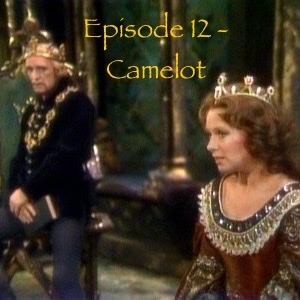



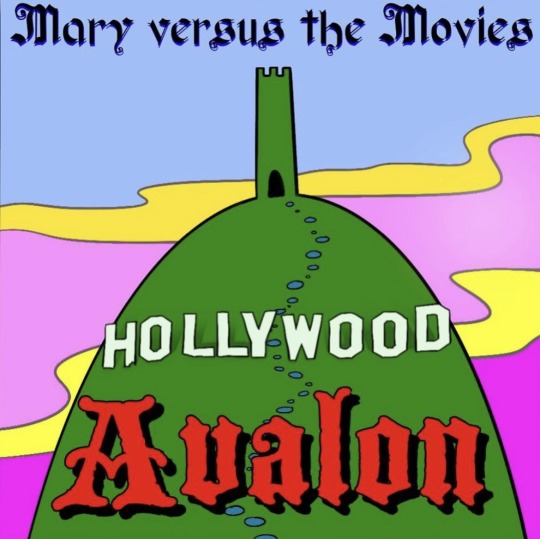
5 notes
·
View notes